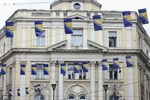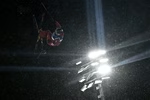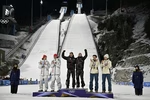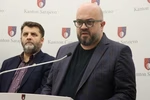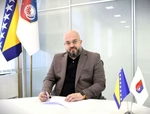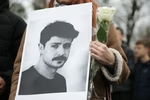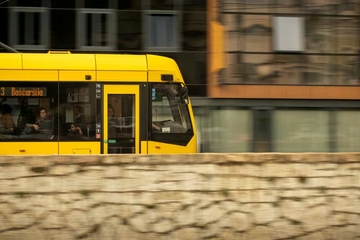IFIMES Director: Document Presidency members agreed on fulfils NATO's condition
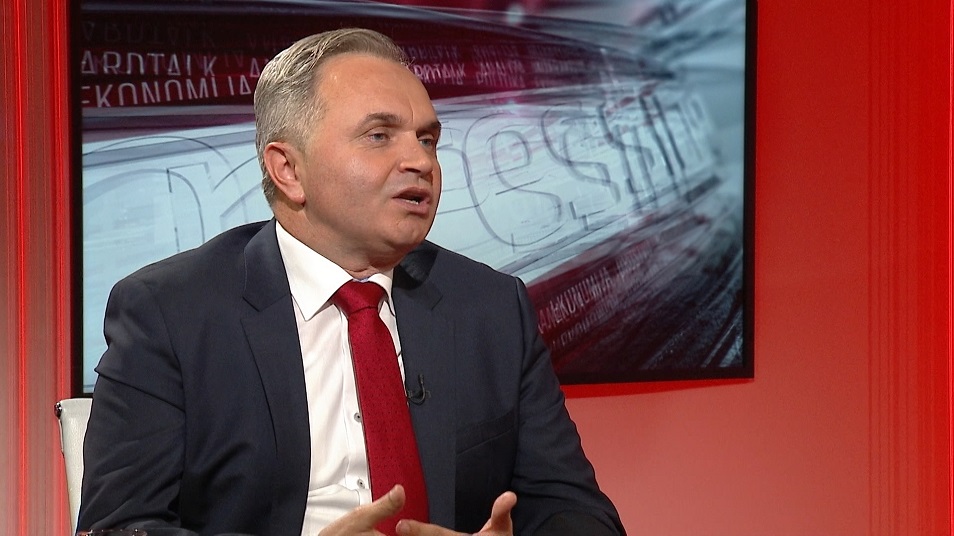
Although it is not officially called the ‘Annual Membership Programme’, the document which Bosnia’s Presidency members agreed will be sent to NATO fulfils the conditions for the country to continue its path toward membership in the alliance, the Director of the International Institute for Middle-East and Balkan Studies (IFIMES), Zijad Becirovic, told N1 on Wednesday.
The three members of Bosnia’s Presidency said on Tuesday that they finally agreed on the appointment of the new Chairman of the Council of Ministers. At the same meeting, they agreed that Bosnia will send a 'Programme of Reforms' to NATO.
This means that a political standoff between the ruling ethnic parties which has crippled the country for the past year is ending.
Becirovic said that “nobody gave in and nobody lost” in that standoff and that "all of them (political leaders) are winners."
But he stressed that “the state of Bosnia and Herzegovina won the most."
Bosnia did not have a new government - officially called the Council of Ministers - formed since the October 2018 election, and the previous ministers have since then been serving their posts in technical mandates.
This is because the Bosniak and Croat members of the tripartite Presidency, Sefik Dzaferovic and Zeljko Komsic, respectively, refused to vote for the new candidate for Chairman, who was supposed to come from the party of Serb Presidency member Milorad Dodik.
The ANP was at the centre of the deadlock. Bosnia was supposed to send the document to the NATO headquarters in Brussels, which would activate the country’s Membership Action Plan (MAP).
But NATO remains unpopular with Serbs in both Serbia and in Bosnia's Serb-majority semi-autonomous entity of Republika Srpska (RS) since the alliance launched airstrikes against the Bosnian Serbs during the 1992-95 Bosnian war and against the Serbian military in 1999 during the conflict between Belgrade and ethnic Albanians in Kosovo.
Although it agreed to Bosnia joining NATO about a decade ago, Dodik’s Alliance of Independent Social Democrats (SNSD) changed its mind in recent years and refused to let the country make any step toward membership.
In line with neighbouring Serbia, Republika Srpska adopted a Resolution on Military Neutrality in 2017 which means it opposes membership in any military alliances.
But Komsic and Dzaferovic argued that not sending the ANP would breach earlier decisions and the law, insisting that unless it is sent, they will not vote for the Dodik's candidate.
They finally expressed support for him on Tuesday. Without ever mentioning the name ANP, Komsic said that "the 'document' will be submitted a day after the House of Representatives of the Bosnia's Parliamentary Assembly confirms the appointment of the Council of Ministers' Chairman-designate.
While Bosniak leadership is saying that the document will activate Bosnia’s Membership Action Plan and that it implies the country’s future integration in the alliance, Dodik insists that this is not true.
The document is not the same as the ANP and it does not predict future NATO membership anywhere, he stressed.
But according to Becirovic, NATO’s condition was fulfilled, only under a different name, and that means that Bosnia is “still going toward NATO membership, step by step."
“I think that the mentor in this entire process was the Embassy of the United States, and if they determined that this is acceptable - there is no doubting that document,” he said.
Becirovic said that Dodik is, despite everything, a product of US policy and working for the interests of the US.
“He is feisty and has excess energy, but he is doing all of this to get rid of the sanctions,” he said, referring to the fact that Dodik has been blacklisted by the US in 2017 for defying Bosnia’s Constitutional Court and obstructing the implementation of the 1995 Dayton Peace Agreement which ended the war.
“We all have families and parents, and his political parent is the United States of America. With this move, he is returning to his political parents,” he added.
According to Becirovic, “Bosnia and Herzegovina will only fall apart if the United States of America falls apart.”
“Dodik did not betray his country, and that is a significant step. What is most important is that a political agreement was reached and that this document will be sent to Brussels,” he said.
Kakvo je tvoje mišljenje o ovome?
Učestvuj u diskusiji ili pročitaj komentare





 Srbija
Srbija
 Hrvatska
Hrvatska
 Slovenija
Slovenija








